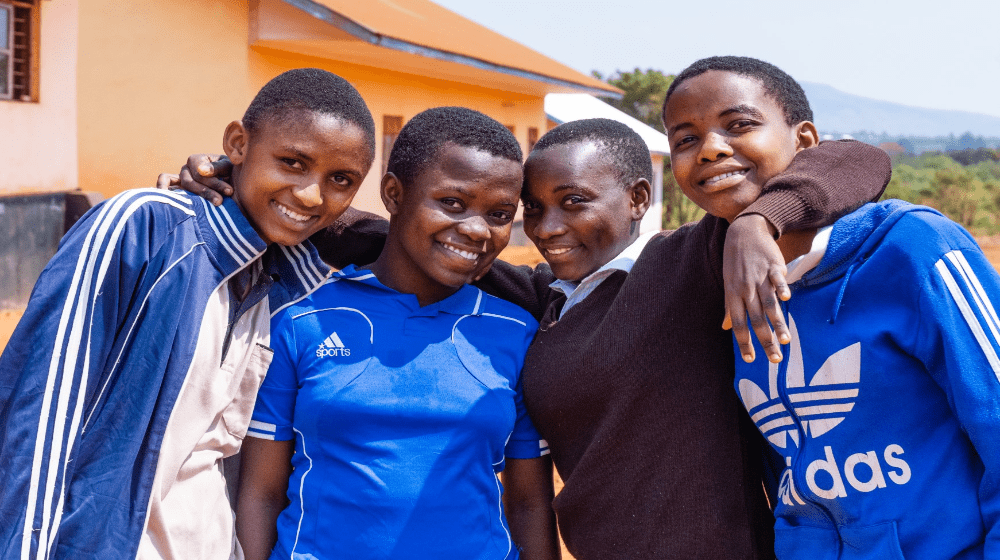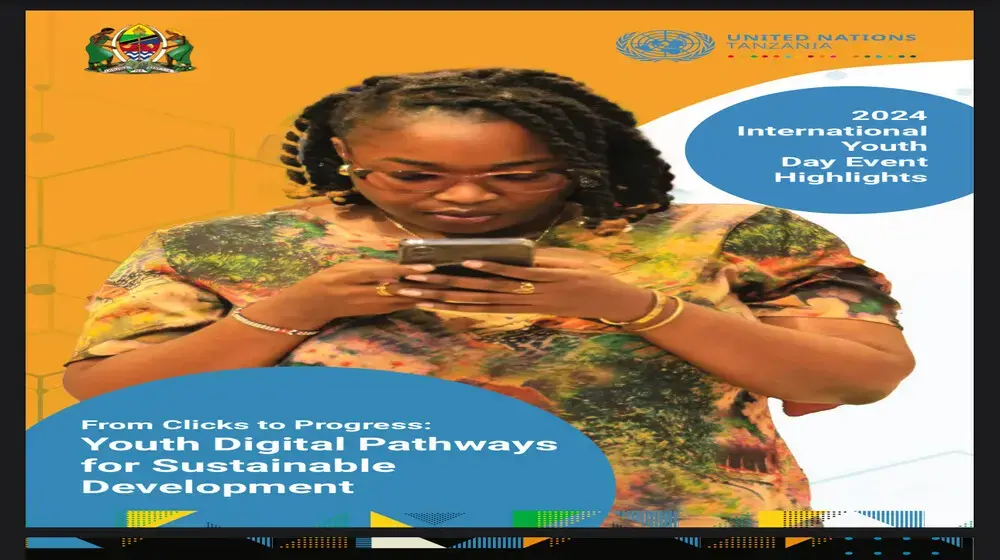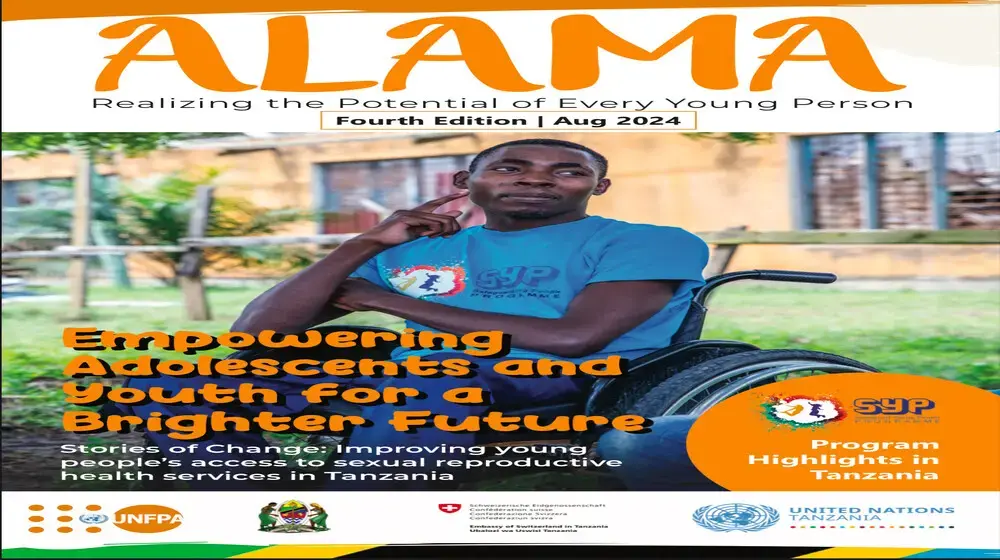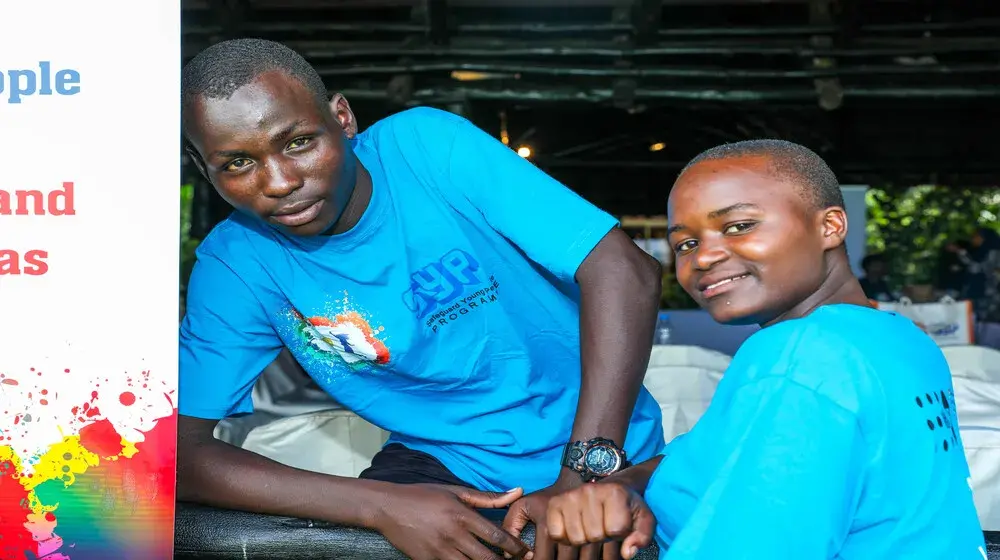OPINION EDITORIAL
International Day of The Girl Child, 11 October
By. Mark Bryan Schreiner, Representative, UNFPA in United Republic of Tanzania
My role as UNFPA Representative to Tanzania was, for two days, taken over by Lucy, a 19-year-old university student of medicine. Her message: Girls have the right to decision-making power over their lives, including their sexual and reproductive health. The Girls Take Over campaign, coordinated by Plan International Tanzania, highlights girls’ agency and leadership capacity. We congratulate Lucy and her peers on their achievements, and wish them success in their advocacy efforts and future careers.
The national theme of this year’s International Day of the Girl Child is: “Our time is now–our rights, our future”, in Kiswahili “Haki zetu ni hatma yetu, wakati ni sasa”. This theme encourages girls to seize their human rights and to build towards a future in which they can develop to their full potential. It also emphasizes the urgency with which development agencies, partners, and communities need to rapidly expand investment and opportunities in programming for girls, to ensure that girls may pursue their dreams, and safely develop into adulthood, leaving no one behind.
The Government of Tanzania National Plans of Action to End Violence Against Women and Children aim to eliminate violence against women and children by 2030 in both Tanzania mainland and Zanzibar. UNFPA – as part of Delivering as One UN efforts – supports the Government within the framework of national and international plans and commitments. This includes the 2030 Agenda on Sustainable Development, in which UN Member States have committed to eliminate gender-based violence and the harmful practices of female genital mutilation and child marriage by 2030.
According to data from the Tanzania Demographic Health Survey (TDHS) 2015/16, one in three women in Tanzania marry before their 18th birthday. Furthermore, 1 in 4 girls has given birth or is pregnant; and 1 in 10 girls has been subjected to female genital mutilation, with large regional variations and more than 5 in 10 girls in some regions.
In our conversations with girls, they have said that they do not want to be forced into marriage, to give birth while they are still children, or to undergo female genital mutilation.
In building a future in which every girl is able to realize her full potential and enjoy her rights, we recognize that there are many challenges along the way. Inhibiting factors include: poverty, deeply rooted social beliefs and norms that deny girls the right to bodily autonomy, allow for limited say in decision-making, and provide unequal access for girls to education and health, including sexual and reproductive health and rights services and information, livelihood opportunities and employment.
Progress is being made; through the hard work of multiple actors, the prevalence of FGM in Tanzania has significantly decreased: from 15 per cent in 2010 to 10 per cent in 2016, according to the Tanzania Demographic and Health Surveys. However, in order to achieve the goals to bring harmful practices to zero by 2030, efforts to empower women and girls need to drastically accelerate. To achieve a more equal future for girls, a multi-stakeholder effort and greater investment is required across a wide range of programmatic interventions.
UNFPA supports the Government of Tanzania to realize the rights of girls and adolescents; this includes: enhancing youth-centred policies, expanding girl-centred programming, and reaching youth with sexual and reproductive health information and services, including for prevention and response to gender-based violence and harmful practices. This information is essential for girls to make informed decisions about their bodies, their lives and their future.
Our long-term cooperation with the Government of Tanzania supports the establishment of structures and infrastructure that forward advancement of gender equality. Our aim is that, through this programming, girls, including those with disabilities, are empowered, socially and economically, to fully seize their rights. On this 10th anniversary of International Day of Girl Child, let us join and hasten our efforts, to empower girls to realize their dreams, for the benefit of the entire community. The time is now.
- Mark Bryan Schreiner serves at the Representative of the United Nations Population Fund (UNFPA) in the United Republic of Tanzania
This article first appeared in the Guardian and Daily News Newspapers Tanzania.





